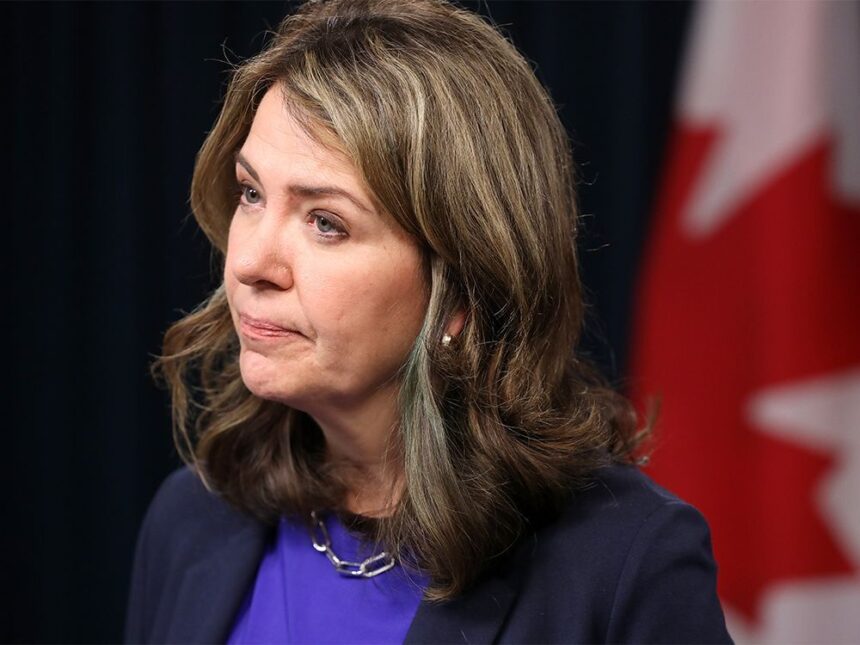The fault lines are deepening across Canada as Premier Danielle Smith’s latest set of demands to Ottawa continues stirring debate from coast to coast. Having spent the last week talking with Calgarians about these developments, I’ve noticed an interesting pattern in how these conversations unfold – usually with passionate opinions but rarely with agreement.
Smith’s recent confrontation with the federal government represents more than just another chapter in Alberta-Ottawa tensions. According to a new report from the Canada West Foundation, nearly 63% of Albertans support the premier’s approach, while only 27% of Ontarians feel the same way. These numbers tell a story of regional division that’s becoming increasingly difficult to bridge.
“This isn’t just about policy disagreements anymore,” says Dr. Martha Reynolds, political scientist at Mount Royal University. “We’re witnessing a fundamental divergence in how different parts of Canada envision the federation working.”
Walking through downtown Calgary yesterday, I stopped by the Bridgeland Market where owner Yousef Traya offered his perspective while restocking shelves. “Look, I’m not saying Smith gets everything right, but at least she’s standing up for us. That counts for something when you feel Ottawa treats you like an afterthought.”
The premier’s demands around pension autonomy and environmental jurisdiction have particularly resonated with many Albertans. Recent polling from Angus Reid shows 71% of provincial residents believe Alberta should have greater control over its pension assets, compared to just 34% of Canadians overall.
However, constitutional experts have raised serious questions about the legal viability of Smith’s proposals. University of Calgary law professor Dr. Katherine Wilson told me, “Many of these demands would require constitutional amendments with widespread provincial support – something that seems highly unlikely in the current political climate.”
The economic implications remain equally contentious. The Business Council of Alberta estimates potential benefits from greater provincial autonomy but acknowledges significant transition costs and uncertainties. Their latest analysis suggests implementation challenges could temporarily disrupt markets even if long-term benefits materialize.
For everyday Calgarians, these high-level disputes often translate to kitchen-table concerns. At a community forum in Kensington last Tuesday, I watched as neighbors with decades-long friendships found themselves on opposite sides of an increasingly heated discussion.
“I’ve worked in oil and gas for 22 years,” said Michael Janssen, an operations manager. “Every time we try to develop our resources, it feels like we’re fighting our own country. Smith is just saying what many of us have thought for years.”
Seated across from him, retired teacher Ellen Crawford countered, “But we’re stronger together. These confrontational approaches only push us further apart when we need cooperation on climate change, healthcare, and the economy.”
The debate extends beyond Alberta’s borders. Saskatchewan Premier Scott Moe has expressed support for several of Smith’s positions, while premiers from eastern provinces have voiced concerns about the potential precedents being set.
Federal response has been measured but firm. Prime Minister Justin Trudeau stated last week that while he respects provincial jurisdiction, certain matters remain firmly under federal authority. “We remain open to constructive dialogue, but the integrity of national programs must be maintained,” he said during a press conference in Montreal.
What makes this round of federal-provincial tension different is its timing alongside growing economic uncertainty. With inflation still pressuring household budgets and interest rates affecting everything from mortgages to small business loans, many Calgarians express fatigue with political battles that seem disconnected from immediate concerns.
“I’m trying to keep my restaurant afloat,” says Maria Chavez, owner of a popular Mexican eatery in Inglewood. “These big ideological fights are important, I guess, but they don’t help me with my supply costs or staffing challenges today.”
The Calgary Chamber of Commerce has taken a nuanced position, supporting aspects of provincial advocacy while cautioning against approaches that might increase business uncertainty. Their recent member survey showed divided opinions, with 54% supporting stronger provincial autonomy measures and 46% preferring more collaborative approaches.
As someone who’s covered Calgary politics for over a decade, I’ve observed federal-provincial tensions ebb and flow. But the current divide feels different – more entrenched and emotionally charged than previous chapters.
Next week, provincial and territorial premiers will meet in Halifax, where Smith’s demands will likely dominate both formal discussions and corridor conversations. The outcomes could either escalate tensions further or potentially open new pathways for dialogue.
For now, Calgarians continue their daily lives against this backdrop of political division – some energized by Smith’s advocacy, others concerned about its implications, and many simply hoping for solutions to the practical challenges facing our city.
In the meantime, I’ll keep talking with people across Calgary, seeking to understand how these high-level political disputes translate to everyday experiences in our diverse communities. After all, beyond the political positioning lies the real story – how ordinary Albertans navigate these complex issues while building their lives in a province that continues to evolve.







